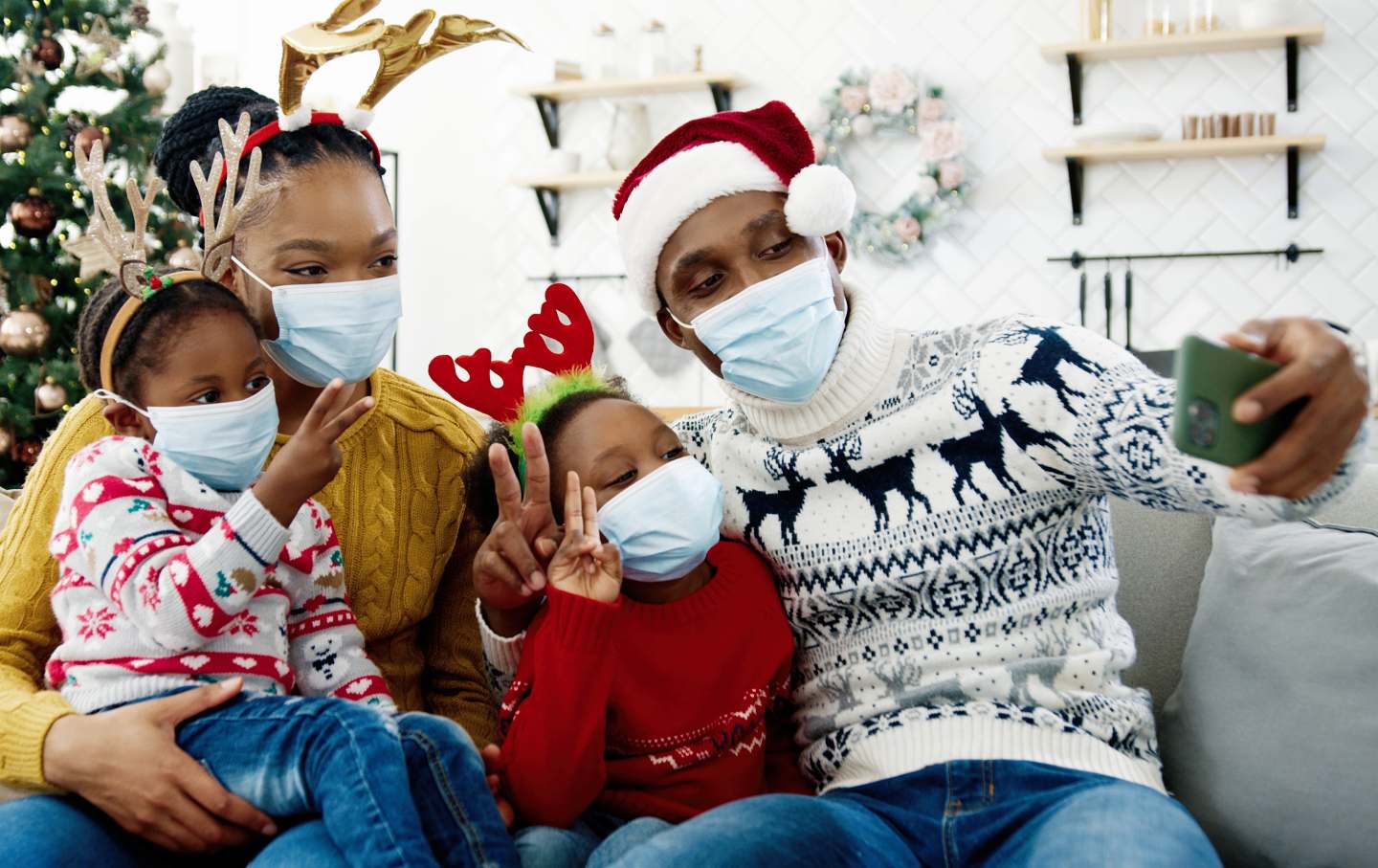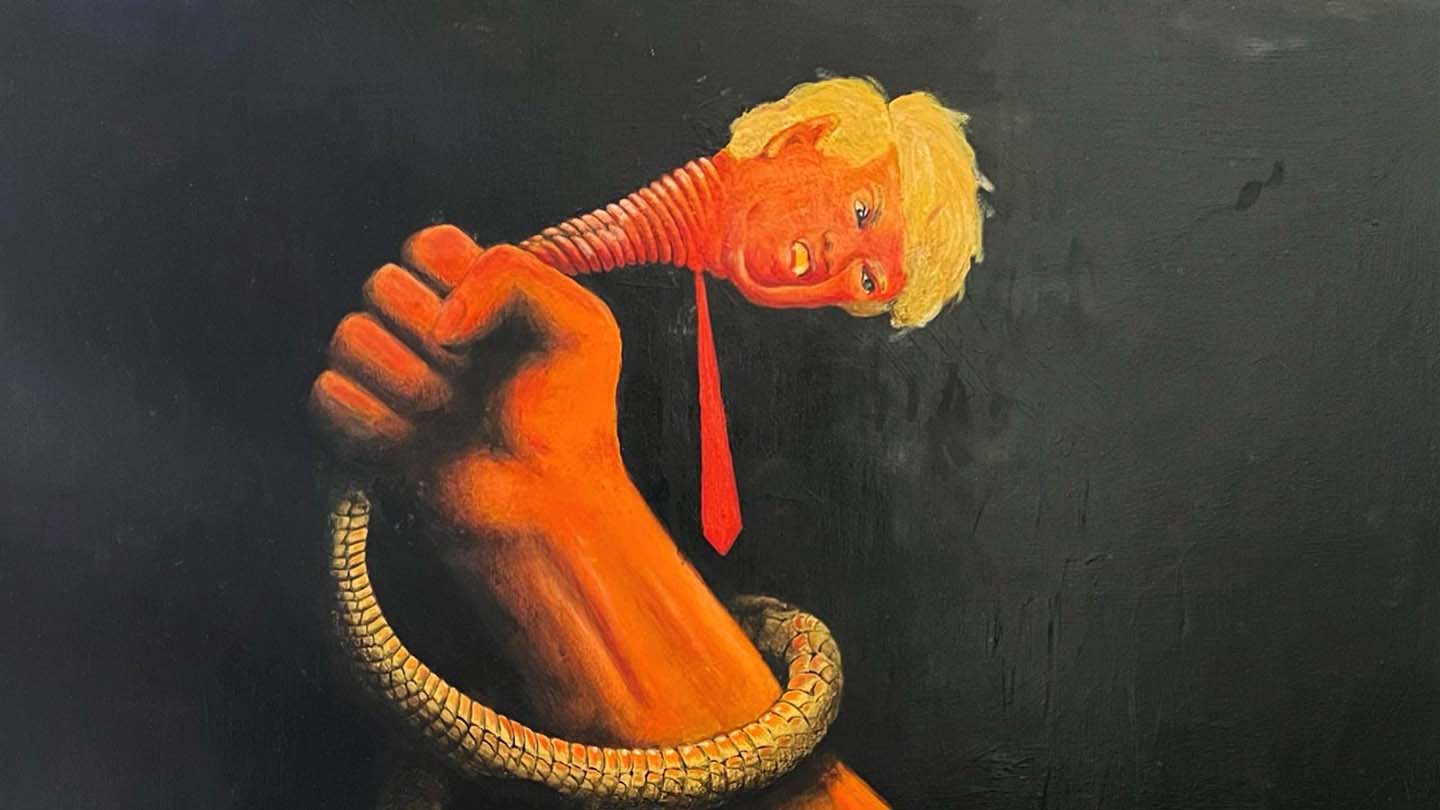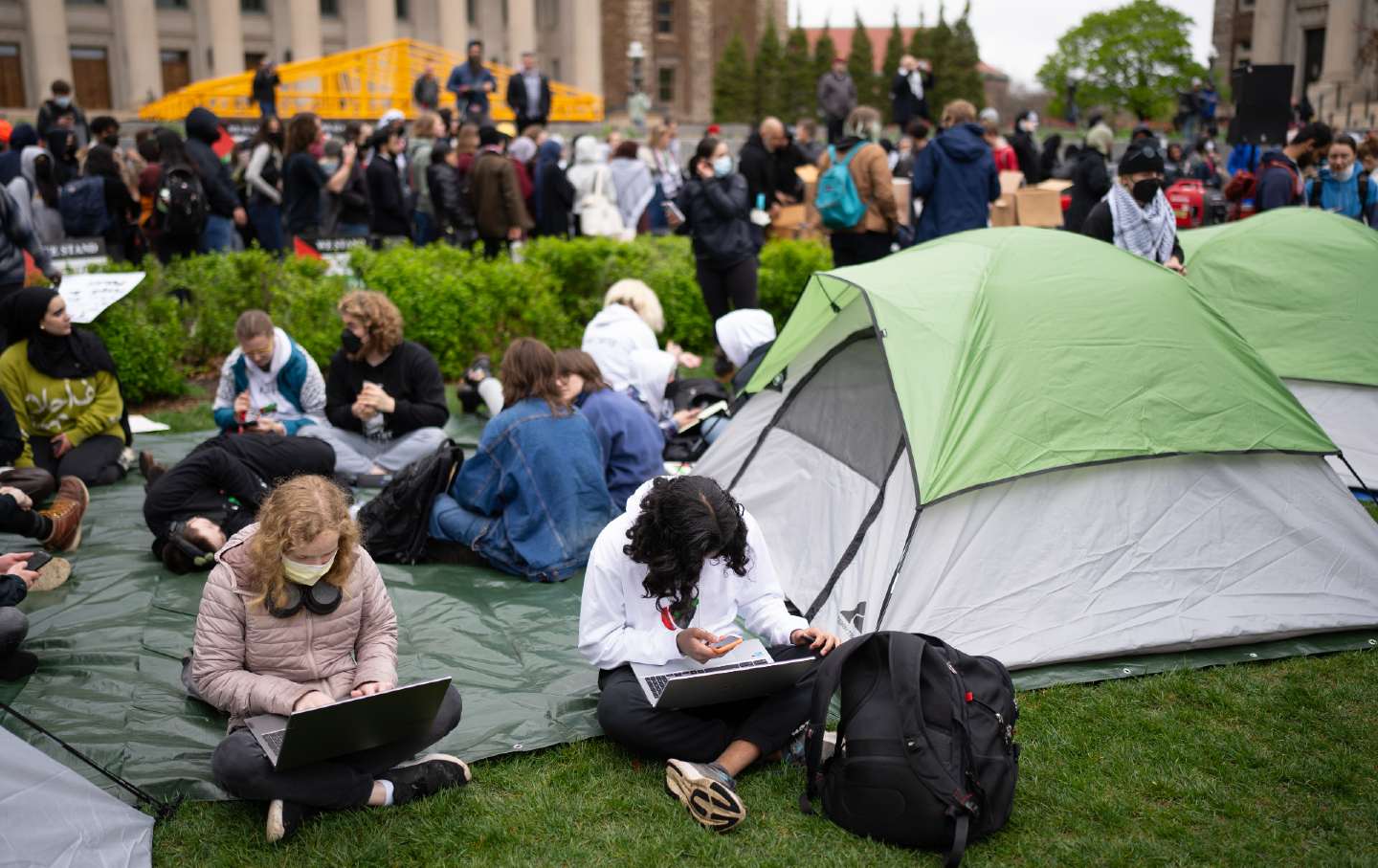Merry Christmas and a Happy New Year—From Covid
If we want to mitigate the great existential threats to our survival—from microbes to the warming planet—we’re going to need bolder thinking than “getting back to normal.”

I cannot believe I am writing another column on Covid. Covid is so last year, the year before, and the year before that. The best and brightest—the noisiest voices about getting back to normal from the past three years—have taken their erstwhile concern for Americans’ public health and gone back to their lucrative concierge medical practices, writing about reviving the American dream, and pooling education data for worried upper-middle-class parents. Normal is as normal does.
But as we head into the new year, Covid is still very much with us. The flu, as always, is back again, and RSV levels are still high—though showing signs of heading out with 2023. According to the CDC, “in the past 4 weeks, hospitalizations among all age groups increased by 200 percent for influenza, 51 percent for COVID-19, and 60 percent for RSV.… If these trends continue, the situation at the end of [December] could again strain emergency departments and hospitals” and “strain on the healthcare system could mean that patients with other serious health conditions may face delays in receiving care.” Is this the normal we signed up for?
Mitch Stripling, a public health professional who has had a long string of positions in pandemic preparedness, including currently running the Columbia University Pandemic Response Institute, has coined a phrase that appropriately describes what is going on at the moment: “parasitic resilience.” In other words, communities with more resources and power bounce back and return to normal by preying on others. (Think of the entire supply chain of goods that rolled up at your door by delivery during the pandemic. All of it had to be picked, caught, killed, or assembled, packaged and transported under great peril by some to make it possible for a whole class of other people to stay at home in relative safety in those early days.) This parasitic relationship exists even now.
It’s likely you know someone who currently has Covid. Perhaps you’ve just had it yourself, or if you haven’t, you’re fearing it during this week’s holiday gatherings. With little to no support for the virus coming from the federal government, “back to normal” for most Americans means little access to “the tools” those with more means or who live in well-off communities, take for granted—from N95s, to vaccines and treatments, to the ability to stay home from work when sick and isolate from loved ones who may be high risk for serious complications of the disease. In fact, it takes active work to forget these disparities, to revel in the return to normalcy, and to celebrate your own good fortune when many people are struggling to get through this season once again. Someone else is paying for our comfort. We just don’t want to notice it.
Stripling has talked of another choice we all have beyond the life of parasites. He and his coauthor, the philosopher Jordan Pascoe, have just published an article in the journal Health Security, called “Parasitic Resilience: The Next Phase of Public Health Preparedness Must Address Power Imbalances Between Communities.” They have used the phrase “an underlying ethics of care,” to refer to a different, alternative form of pandemic response based on community renewal. They call for these ethics to replace notions of resilience that rely on perpetuating inequalities and reinforcing a status quo that predominantly serves those who have always had more to begin with in the face of public health emergencies. An ethics of care seeks to build-in systems that are purposefully more prosocial during these crises. But it will take more than a visit from the Ghost of Pandemic Future to move us away from parasitic resilience towards something better, fairer, more just and generous.
Those who work in public health are constrained by political leaders at local, state, and federal levels. Despite the well-worn caricature of public health officials as powerful martinets, most report up to people who are the deciders in chief, who themselves are captive both to political forces and public opinion around them. Public health is underfunded, understaffed, and undermined more and more these days. And there isn’t much to indicate that will change in 2024, no matter who the president is. To get us to “community renewal,” we will have to think outside of public health and toward a larger political project that addresses other common problems, requiring a more prosocial approach—for instance, mitigating climate change.
Those in my field may scoff at this suggestion for several reasons. First, some will suggest we’re just technocrats; we serve up data and analysis, and should get out of the way to let the deciders in chief decide. Second, some will say we’ve got to keep politics out of public health at all costs. Third, others may urge that we need to be reasonable and lower our expectations of what can be done. Fourth, some will say we’ve got to do whatever is politically palatable to “both sides,” conservatives and liberals, split the difference, and head for the lowest common denominator.
While I’ve got Dickens on my mind this week, I’d ask those who are skeptical to read their history. While Dickens tells us of Scrooge’s personal renewal, it was our predecessors in Dickens’s time that pioneered community renewal long ago: the campaigns for sanitation and public health that raised living standards and life expectancy in the midst of the great economic imperative of the Industrial Revolution.
I turned 60 this year. I came of age in the shadow of Ronald Reagan and the revolution in social and economic policy he presided over with a sunny disposition disguising its cruelty. But none of it was or is destiny. As the late Tony Judt once said: “Much of what appears ‘natural’ today dates from the 1980s: the obsession with wealth creation, the cult of privatization and the private sector, the growing disparities of rich and poor. And above all, the rhetoric that accompanies these: uncritical admiration for unfettered markets, disdain for the public sector, the delusion of endless growth.”
If none of our current political, social, and economic order is considered “natural,” then we can remake it as such. The great existential threats to our survival from microbes, to the warming planet, require bolder thinking than getting back to normal: a set of standards that long ago set us on a path that led to over a million lives lost from Covid in just a few years’ time. Sometimes the status quo, however comforting for some, is deadlier than a virus.
Thank you for reading The Nation!
We hope you enjoyed the story you just read, just one of the many incisive, deeply-reported articles we publish daily. Now more than ever, we need fearless journalism that shifts the needle on important issues, uncovers malfeasance and corruption, and uplifts voices and perspectives that often go unheard in mainstream media.
Throughout this critical election year and a time of media austerity and renewed campus activism and rising labor organizing, independent journalism that gets to the heart of the matter is more critical than ever before. Donate right now and help us hold the powerful accountable, shine a light on issues that would otherwise be swept under the rug, and build a more just and equitable future.
For nearly 160 years, The Nation has stood for truth, justice, and moral clarity. As a reader-supported publication, we are not beholden to the whims of advertisers or a corporate owner. But it does take financial resources to report on stories that may take weeks or months to properly investigate, thoroughly edit and fact-check articles, and get our stories into the hands of readers.
Donate today and stand with us for a better future. Thank you for being a supporter of independent journalism.
Thank you for your generosity.








